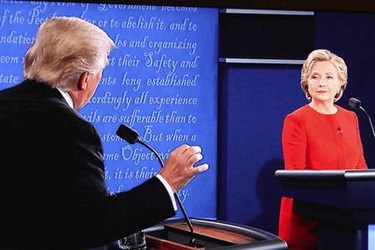Is There Finally Hope For Infrastructure Relief?


No matter what happens at the polls on Tuesday, both presidential candidates have made public pledges to address the country’s infrastructure problems. That’s extremely good news for both cities and states, because it appears that the next president will champion infrastructure reform. Long overdue infrastructure needs such as water, energy, and road and bridge projects have been postponed as federal funding has steadily declined. That could soon change.
However, the way the problem is addressed will be very different depending on who wins the election. Here’s a quick overview of what can be expected:
Donald Trump has made public statements that include the following bits and pieces of his infrastructure spending plan:
- Trump says he will refocus government spending on American infrastructure but provide maximum flexibility to the states. Details of the plan have not yet been released.
- He says his plan to generate new tax revenues will rely heavily on jobs that are created and the economic stimulus that will result from infrastructure projects.
- His plan is to attract investors through a deficit-neutral system of infrastructure tax credits.
- Trump says he supports public-private partnerships and would like to see infrastructure addressed similar to the way the interstate highway system was developed.
- His campaign has said that Trump would employ incentive-based contracting to ensure projects are completed on time and on budget.
- Trump’s plan would include approving energy infrastructure projects — including pipelines and coal export facilities — to connect American coal and shale energy production with markets and consumers.
- One of Trump’s recent comments was that “Secretary Clinton’s plans are not big and visionary enough.” He pledged to double whatever she is planning to spend on infrastructure.
Secretary Hillary Clinton has outlined a more detailed plan for infrastructure reform that includes the following:
- Clinton says she will support smart investments and plans to increase federal infrastructure funding by $275 billion over a five-year period.
- The funding would be repaid through business tax reform.
- She is proposing to allocate $250 billion for direct public investment and allocate $25 billion of that amount to a national infrastructure bank dedicated to advancing the country’s competitive advantage for the 21st century economy.
- Her proposed infrastructure bank would leverage the $25 billion to support up to an additional $225 billion in loans, loan guarantees and other types of credit enhancement — meaning that the plan would in total result in up to $500 billion in infrastructure investment.
- Her plan includes providing funds through merit-based competitive grants as well as streamlining the federal government’s permitting processes.
- Clinton has pledged to support multi-modal projects that would encourage better design and technology.
- Her infrastructure plan includes connecting farms, businesses, and households to safe and reliable drinking water and wastewater systems.
- She has been quoted as supporting pipeline infrastructure, ports, rail, and the country’s energy grids.
- At a rally in Colorado last week, Clinton said that “We’re going to have the biggest infrastructure investment program since World War ll.”
For citizens, taxpayers, and public officials throughout the country, these pledges are welcome words. The nation’s infrastructure assets are critical elements of global competition and most have been overlooked and underfunded for entirely too long. The jobs that would be created would be a huge benefit as well.
Of course, the next president will have to gather consensus from Congress to move forward with any of the pledges. That could be problematic! American voters casting ballots on Tuesday, almost to the individual, will be hoping that the next leader will be a consensus-builder capable of delivering infrastructure relief.
Mary Scott Nabers is president and CEO of Strategic Partnerships Inc., a business development company specializing in government contracting and procurement consulting throughout the U.S.
